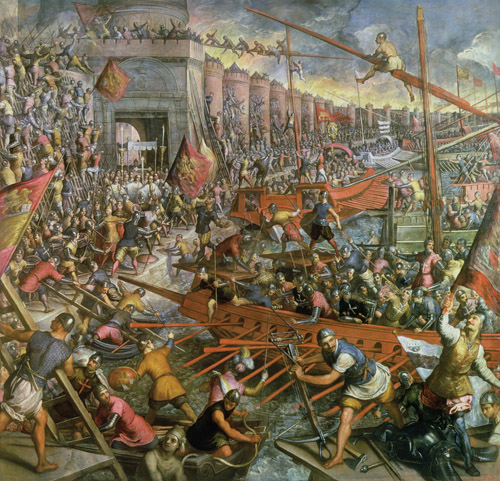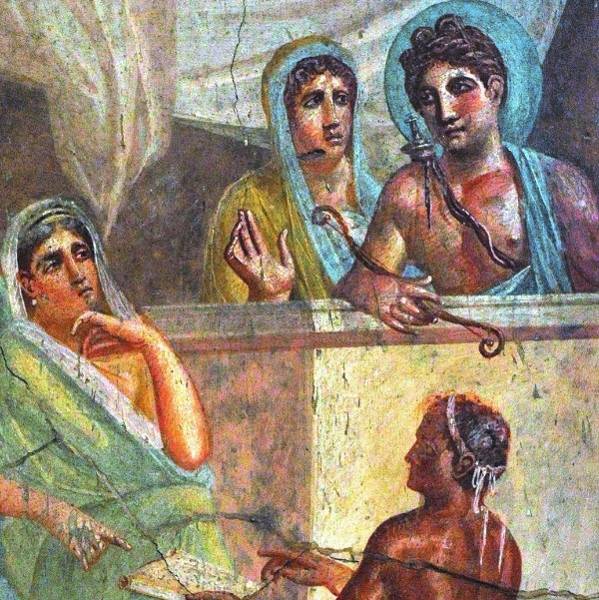
This article is a preview from the Spring 2015 edition of New Humanist. You can find out more and subscribe here.
In a pamphlet published in 1930 by the Rationalist Press Association (the organisation behind New Humanist), Bertrand Russell laid down what seems to be the classic humanist line on war. The title of the pamphlet took the form of a question – “Has Religion made Useful Contributions to Civilisation?” – and Russell’s answer was an almost unqualified no. He conceded that religion might have inspired our ancestors to study the stars and compile calendars, but apart from that, he said, it had served only to throw a cloak of priestly respectability over the principal sources of human misery, namely ignorance, fear, conceit, hatred and mistrust. Religion, in short, was a world conspiracy for the propagation of folly and the prevention of progress. “The knowledge exists by which universal happiness can be secured,” Russell wrote, but the churches were not interested, and preferred to perpetuate pestilence, famine, cruelty and above all war:
Religion prevents our children from having a rational education; religion prevents us from removing the fundamental causes of war; religion prevents us from teaching the ethic of scientific co-operation in place of the old fierce doctrines of sin and punishment. It is possible that mankind is on the threshold of a golden age; but, if so, it will first be necessary to slay the dragon that guards the door, and this dragon is religion.
The argument may have sounded good in 1930, but it was always rather shaky. For one thing, it is not obvious that war is invariably evil. Apart from the fact that it can sometimes be justified, it may also serve (as William James observed) as a school for such virtues as solidarity, bravery, comradeship, stoicism and self-sacrifice. And there is a case for saying – with Thomas Hobbes in the 17th century, and more recently with the historian Ian Morris – that without wars, civilisation would never have happened: without wars, there would have been perpetual insecurity, and no space for the cultivation of civility, mutuality, cultural creativity, public-spiritedness and prosperity, not to mention political deliberation, human rights and the rule of law. (See Ian Morris, War! What is it Good for? Profile, 2014.) But even if Russell is right, and war is good for nothing, his argument is spoiled by his zeal, and his summons to “slay the dragon” of religious belief sounds more like a fanatical call to arms than an overture to peace and reconciliation.
As the human cost of war soared in the following decades, Russell’s claims began to look even less plausible. Religion played hardly any role in the murderous belligerence of Nazi Germany, or in the actions of the other participants in World War Two, and, as time went by, the activities of officially atheistic régimes in the Soviet Union and Communist China turned out to fall some way short of peace-loving benignity. Of course you might argue that the inspirations of both Nazism and Communism were really religious, if only unconsciously; but this line of thought is liable to spiral into absurdity. Before long the concept of religion will burst the bounds of any usable definition, and we will find ourselves saying that everyone is really religious at heart, even those of us who shun all forms of other-worldliness and put our money on one of the secular options, such as the religion of humanity, or socialism or liberalism or nationalism, or the religion of science, materialism or enlightenment rationalism.
Most of us would like to believe that religious violence has been in decline since the benighted middle ages, but the evidence is against us. Class-struggles and dynastic or national ambitions have been at the root of nearly every military conflict, and the prizes at stake have been material or territorial rather than theological. The clashes between Christians and Muslims in the Middle East over the past thousand years have been about imperial ambition rather than spiritual salvation, and the main issues in the so-called wars of religion in 16th- and 17th-century Europe arose from the sickliness of the Holy Roman Empire and the political aspirations of the Pope, rather than quarrels between Protestants and Catholics. Nominally religious adventures in foreign lands did not exclude pluralistic tolerance at home, and if religious beliefs played any role in military action they figured as pretexts, afterthoughts or self-deluding rationalisations, or perhaps cynical bids for popular support, rather than primary motives for war.
You could in fact argue that acts of war motivated purely by religion were unknown till well into the 20th century, with the Irish volunteers who went to Spain in 1936 to fight for Catholicism and General Franco providing one of the earliest examples. The al-Qaeda attacks on Washington and New York in 2001 may have been about US foreign policy, but the motivation of the Kosovans, Britons, Danes, Germans and Americans who have recently headed off to serve as Islamist warriors in Iraq and Syria seems to be almost entirely religious. Far from being a throwback to a bygone age, therefore, religious warfare seems to be a peculiar by-product of secular late modernity.
Perhaps for the first time in history, religious leaders have recently started to recognise that religion may itself be part of the problem – not just the religion of others, but their own as well. A few months ago, dozens of British imams appealed to Muslims to repudiate the bloodthirsty militancy which, though it speaks the language of holy martyrdom, is in fact, according to them, contrary to the teachings of the Qur’an. Shortly afterwards, the two chief rabbis of Israel condemned biblically inspired violence against Arabs as “not the way of the Torah”. Meanwhile Justin Welby, Archbishop of Canterbury, has issued an appeal to “the leaders of those who see the world in religious terms”, asking them to “up their game” and collaborate in deploying religious arguments against the very idea of holy war.
If the archbishop and the rabbis and imams are looking for guidance about using religion as an antidote to religious violence then Karen Armstrong’s latest book, Fields of Blood: Religion and the History of Violence, will probably be at the top of their reading list. Armstrong is well known for the memoir Through the Narrow Gate, published more than 30 years ago, in which she described the generous teenage impulses that led her to become a Catholic nun, and how they were squashed by the idiocy, stubbornness and petty cruelty of convent life, to the point where she decided that, as she put it, she “hated religion”. She has never given up entirely on religious belief, and she now describes herself as a “freelance monotheist”, perhaps rather more sympathetic to Islam or Judaism, or indeed Buddhism or Hinduism or Confucianism than to the Christian faith in which she was nurtured.
Since leaving her convent, Armstrong has produced an impressive series of books exploring the development of religion round the world, paying special attention to shared themes and points of agreement. The conclusion she draws from her historical inquiries is that religions are not so much bodies of propositions about a sacred supernatural world, as sets of practices in which communities come together to cultivate the arts of kindness, humility and forgiveness. Forget the theology, she seems to say, and just look at the practical results. As well as being a respected author, she is also an active campaigner, and since 2008 she has led an international movement called “Charter for Compassion”, with supporters ranging from the Dalai Lama to Richard Branson, which calls for people of any faith or none to unite in the cause of toleration and non-violence. Armstrong is clearly a formidable force for good; I only wish I found her arguments more convincing.
The first three hundred pages of Fields of Blood offer a synoptic history of the main religions of the world, starting in China, India and the Middle East, and then focusing on Christianity and Islam. The basic contention is that organised religion first took shape in the second millennium BC, and that it arose from the spread of urban civilisations, based on agriculture and aristocratic authority, at the expense of prehistoric ways of life based on hunting and foraging. The transition involved the replacement of sporadic violence with systematic warfare, and it also led, according to Armstrong, to the creation of religious institutions designed to affirm “the sacredness of every single human being”, though in practice they often allowed themselves to deviate from their original high ideals.
Armstrong supports her case with vast amounts of lucidly presented information, which any ordinarily competent reader will imbibe with gratitude. I have to admit however that I found it hard to take in. When I am told, for instance, that “the Chinese believed that at the beginning of time human beings were indistinguishable from animals” I find myself wondering, a little rebelliously, what exactly they had in mind and whether some of them might not have had their doubts. And when I read that “Videha was scorned by the conservative Brahmins in the Doab”, the only thing I really learn is that I am hopelessly out of my depth when it comes to the history of India.
For me, the book did not really come to life until the closing chapters, where broad historical surveys give way to pointed polemics, directed primarily against Richard Dawkins. As far as militant atheism is concerned, Dawkins is today’s equivalent of Bertrand Russell, and Russell would no doubt have endorsed his argument that religion, especially Islam, leads naturally to terrorist violence. “Only religious faith is a strong enough force,” Dawkins says, “to motivate such utter madness in otherwise sane and decent people.” Armstrong is prepared to acknowledge that religions can be aggressive, and that they have sometimes allied themselves with cynical warmongers; but as far as she is concerned her evidence – solid empirical evidence of a kind that a scientist like Dawkins ought to respect – proves that, as she puts it, “all the world’s great religious traditions share as one of their most essential tenets the imperative of treating others as one would wish to be treated oneself.”
But Armstrong has more in common with Dawkins than she thinks. Like him, she is happy to generalise about all the religions of the world, and to do so not by analysing the details of their doctrines but by forming an overall impression of their social functions and consequences. She says that religion is “like the weather” in that it “does lots of different things”. But religion is nothing like weather: it is not a force of nature that enters into people’s lives and activities in the way that rain or fog or sunshine do, but a miscellany of concepts and doctrines and stories, often vague or contradictory, and individuals will interpret and argue over them in their own way, adapting them to their particular circumstances and drawing their own conclusions. A balance-sheet of the harms and benefits attributable to religion in general over the past four thousand years has its uses, no doubt, but it does not touch on the ways in which religious ideas enter into people’s thought-processes, and provide them with reasons for all sorts of action, sometimes cruel and sometimes kind. When it comes to evaluating religion, social history is not enough, and neither is natural science. Religions have their reasons, after all, and they call not for blanket endorsement or condemnation but for close and detailed intellectual engagement of a kind that neither Dawkins nor Armstrong seem ready to provide.
Fields of Blood: Religion and the History of Violence is published by The Bodley Head

